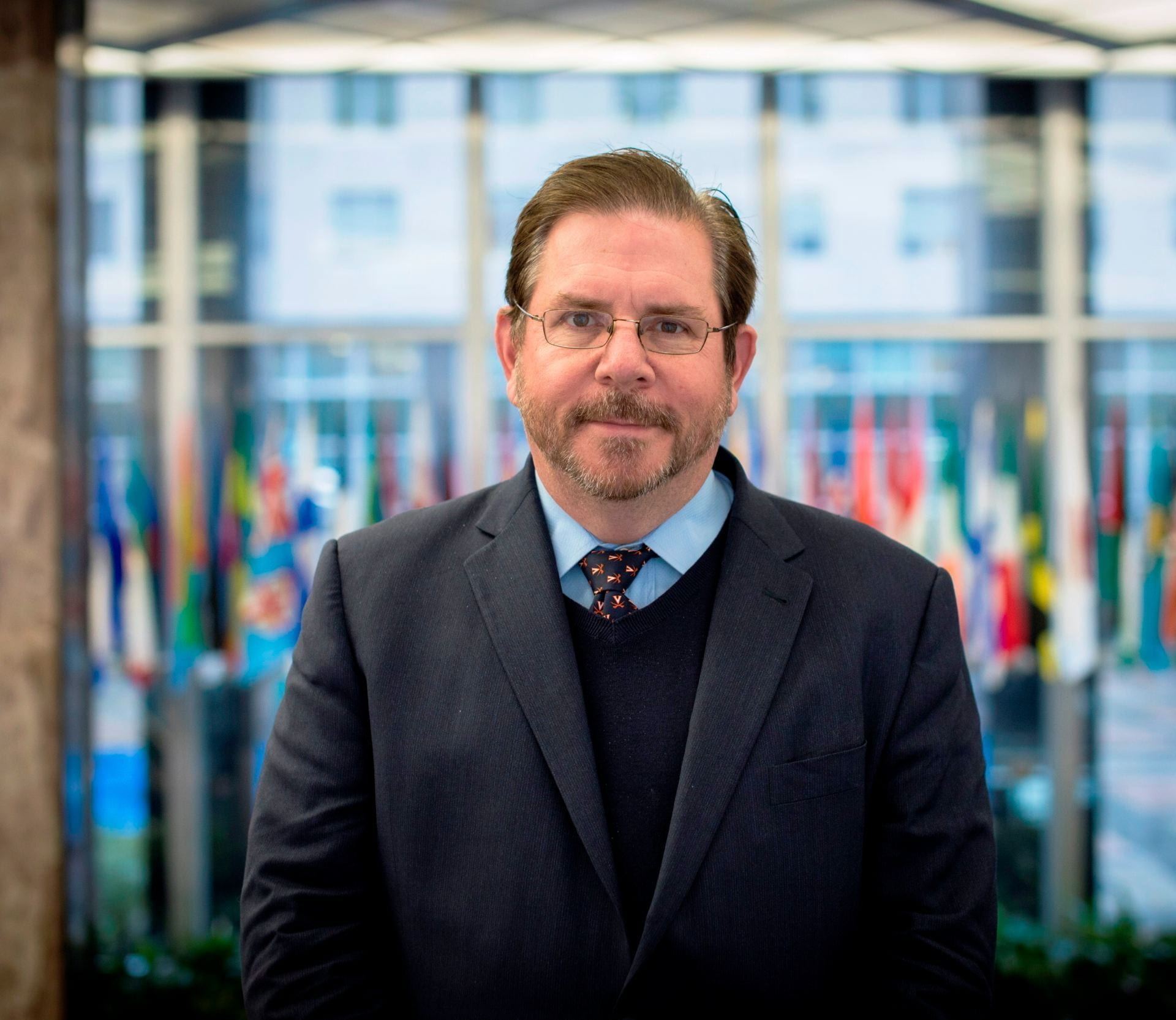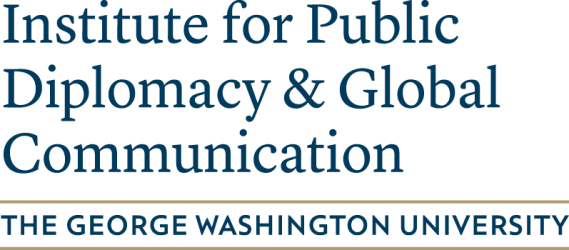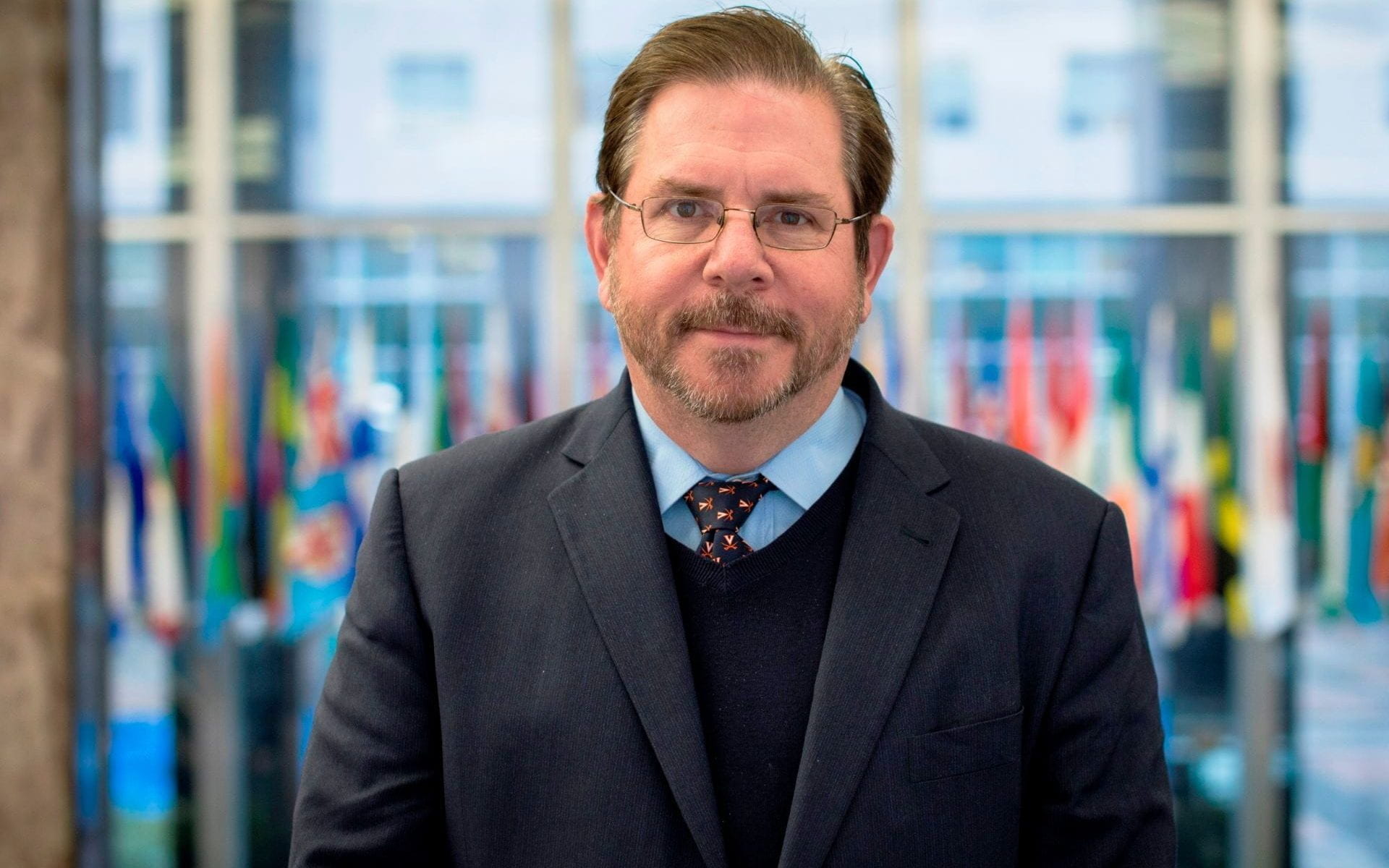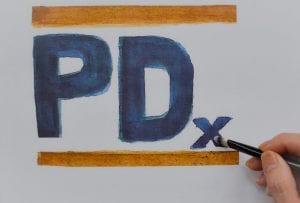“BBG Strategic Plan, 2018-2022,” Broadcasting Board of Governors (BBG), released February 2018. In its fifth strategic plan, the BBG seeks to explain the mission, goals, and objectives of its array of US international media networks: Voice of America (VOA), Radio Free Europe/Radio Liberty (RFE/RL), Middle East Broadcasting Networks (Al Hurra and Radio Sawa), and Radio and TV Marti. The BBG frames its projections in the context of external threats, placing emphasis on “weaponization of information and deteriorating media freedom,” its “signature accomplishments,” worldwide weekly audience levels, and a “reorganized agency structure,” which in its view is “capable as never before to implement change.”
Literature on American diplomacy continues to overlook a rich history of diplomatic practice in relations with Native Americans during the colonial era and early years of the United States. Dartmouth College professor Calloway does much to remedy this in a masterful study of Washington’s long association with the American frontier as land speculator, soldier, diplomat, politician, and president. (So also does Michael Oberg’s recent book on the Treaty of Canandaigua listed below.) Fundamentally, Calloway argues, Washington “was instrumental in the dispossession, defeat, exploitation, and marginalization of Indian peoples.” At the same time, as a young man he received a “crash course in Indian diplomacy” and the diplomatic skills needed to deal with the formidable power of multiple nations on the American continent. Colonial rivalries and indigenous peoples were of central importance to him throughout his life. Establishing US sovereignty meant dealing with the sovereignty of Indian nations through force and negotiated treaties, and his “conduct of Indian affairs shaped the authority of the president in war and diplomacy.” Calloway’s book provides abundant evidence and deeply informed insights into early patterns of practice in the American ways of war, traditional diplomacy, and public diplomacy that cast a long shadow.
Amy Chua, Political Tribes: Group Instinct and the Fate of Nations, (Penguin Press, 2018). While it’s not a book about diplomacy, Yale University Law School professor Chua’s
Political Tribes addresses ideas that are fundamental in diplomatic practice. We belong to groups. Human beings are tribal, and in-group identities matter most. We also seek to bridge divides in anticipation our groups will benefit and that there is value in common enterprise. So far, so good. She argues the US has often been blind to the power of tribal politics preferring instead to frame differences as nation-states engaged in ideological battles, capitalism vs. communism, democracy vs. authoritarianism, the free world vs. rogue states. Failure to understand the primacy of ethnic, religious, and sectarian tribes, Chua contends, has been the Achilles’ heel of US foreign policy in Vietnam, Iraq, Afghanistan, Libya, Venezuela, and elsewhere. Here too her reasoning has merit, as does her critique of identity politics in America today. She is less persuasive, however, in offering a version of American exceptionalism, in which America alone has transcended tribalism, while simultaneously providing compelling examples to the contrary.
Costas Constantinou, “Reflections on Diplomatic Spectacle and Cinematic Thinking” The Hague Journal of Diplomacy, 13(2018), 1-23. In this important article, Constantinou (University of Cyprus) looks imaginatively at “visual diplomacy,” his frame for the ways and means diplomatic actors use images to convey ideas, produce and circulate meanings that serve particular purposes, and seek to shape and transform relations between actors and across publics, both foreign and domestic. He examines these concepts in a study of diplomacy as spectacle grounded in a case of commissioned cinematography on Cypriot public diplomacy. He creatively supplements his verbal arguments with a self-produced film,
The Blessed Envoy, a montage of official Cypriot documentaries that reveal narratives and hidden transcripts in the visual content, permitting judgments on the use of imagery in mediated diplomacy. Constantinou draws attention to ideas worth consideration and debate: pluralist, multi-stakeholder diplomacy and asymmetrical representation in new varieties of diplomatic space; the power and emotional impact of “visuality” in mediated diplomacy; how imagery constructs reality and relates to identity, verbal narratives, and the politics of representation by groups; and his provocative idea that “the spectacle has become a form of diplomacy through which the repertoire of images is orchestrated for mass consumption.” Constantinou’s compilation of short documentaries
The Blessed Envoy is linked to the article and available online at
https://vimeo.com/215142076 (password: Makarios).
Ronan Farrow, War on Peace: The End of Diplomacy and the Decline of American Influence, (W.W. Norton & Company, 2018). Writing with power and flair unsurprising in a Pulitzer Prize winning investigative journalist for the
New Yorker, Farrow tells a story of crisis and decline in the institutions of American diplomacy and the ascending dominance of soldiers and spies in US foreign policy. Farrow’s central argument is that professional diplomats have been sidelined due to decades of shortsighted choices in both Democratic and Republican administrations. His point is not that institutions of traditional diplomacy are not in dire need of reform. America’s foreign ministry is often “slow, ponderous, and turfy,” and its structures and training outdated in the face of modern challenges. Rather, it’s that “we are witnessing the destruction of those institutions, with little thought to engineering modern replacements.” His book draws on more than 200 interviews with diplomats and policymakers, including all living former Secretaries of State, and his work in the State Department with Richard Holbooke in Afghanistan and as Secretary Hillary Clinton’s director of youth issues. Practitioners will find his account worth reading for its insights and as a point of comparison with their own experiences. Scholars will find ample evidence for claims about the changing role of foreign ministries in a world of complex global issues. See also, Farrow’s
“Inside Rex Tillerson’s Ouster,” The New Yorker, April 19, 2018.
Niall Ferguson, The Square and the Tower: Networks, Hierarchies, and the Struggle for Global Power, (Penguin Books: 2017). Ferguson’s (Stanford University) thesis is that social networks have been much more important throughout history than understood by most historians fixated on hierarchies in states, empires, tribes, armies, churches, and corporations. He begins with 60 pages of inquiry, thoroughly accessible to the non-specialist, into network concepts – nodes, degrees of separation, weak ties, viral ideas, vulnerabilities of hierarchies, network structures, hierarchies as special kinds of networks, and networks with hierarchical features. Ferguson then engages in a sweeping historical study of the interaction between networks and hierarchies. He pays particular attention to three periods: (1) the “first ‘networked era,’” from the printing press to the late 18
th century; (2) followed by a period in which hierarchies regained dominance, reaching their zenith in the mid-20
thcentury; and (3) a “second ‘networked era’” beginning with the rise of digital technologies in the 1970s. Whether or not his history fully supports his macro-theories, his book stimulates thought and asks a provocative question. Should we expect both continued disruption of hierarchies that fail to reform and some hierarchical restoration when networks alone cannot avert anarchy?
Andrew Graan, “The Nation Brand Regime: Nation Branding and the Semiotic Regimentation of Public Communication in Contemporary Macedonia,” Signs and Society, Vol. 4, No. S1, 2016, S70-S105. Graan (University of Chicago) examines elements and implications of a state-sponsored nation-branding project, an urban renewal plan to transform Skopje undertaken by the Republic of Macedonia in 2014. It’s goal: “to (re)launch Macedonia as a premium nation brand” and put the architectural transformation of Skopje at the center of a strategy to make the nation and its capital “recognizable and desirable to foreign investors and tourists.” Graan uses his case study to support several arguments. Nation-branding strategies are interventions within and across public spheres. Macedonia’s strategy targeted external and internal publics, adopting signs and symbols based on their anticipated impact on the nation-branding project. The nation’s government-produced media sought to motivate Macedonians to “live the brand” as part of coordinated efforts to regulate public communication. His article offers a thoughtful account of critics and supporters of the Skopje renewal project and concepts of systematic nation branding as a strategy and public good. (Courtesy of Nick Cull)
Todd C. Helmus, Elizabeth Bodine-Baron, Andrew Radin, Madeline Magnuson, Joshua Mendelsohn, William Marcellino, Andriy Bega, and Zev Winkelman, Russian Social Media Influence: Understanding Russian Propaganda in Eastern Europe, RAND Corporation, 2018. RAND’s researchers examine the content and impact of Russian social media and government broadcasting in the Baltics, Ukraine, and other nearby states. The 148-page study is available in print and online versions.
Ries Kamphof and Jan Melissen, “SDGs, Foreign Ministries and the Art of Partnering with the Private Sector,” Global Policy, 2018. Kamphof and Melissen (Netherlands Institute of International Relations, ‘Clingendael’) examine conceptual and diplomatic practice issues in partnerships between foreign ministries and private stakeholders intended to achieve Sustainable Development Goals (SDGs). Their article builds on the idea that networking is now the dominant conceptual basis for diplomacy, with consequences for how we think about diplomats in multi-stakeholder deliberations where non-government actors are co-producers of diplomatic outcomes. Concepts and insights from public relations and public diplomacy, they argue, are relevant to understanding these networked relations. SDG partnerships pose new challenges to diplomacy practitioners, because “they are universal in scope, more intrusive in terms of their impact on a multi-stakeholder diplomatic process; and they aim at systematic innovation.” Kamphof and Melissen point to multiple contextual and operational implications for diplomacy practitioners including the need to be aware of the double-hatted role of companies that combine public goals with shareholder goals that may run counter to sustainable development principles.
Pauline Kerr and Geoffrey Wiseman, eds., Diplomacy in a Gobalizing World (Oxford University Press, second edition, 2018). In this substantially revised second edition of their groundbreaking textbook, Kerr and Wiseman (Australian National University) update their own pioneering analysis of theory and practice in modern “complex diplomacy” and the insights of twenty-three accomplished scholars. Chapters examine the historical evolution of diplomacy, concepts and theories in contemporary diplomacy, debates on diplomacy’s future, and varieties of structures, processes, and instruments in diplomatic practice. Three new chapters examine diplomacy and the use of force, women in diplomacy, and the value of “practice theory” in understanding bilateralism and multilateralism. Kerr and Wiseman blend theory and practice with clarity and cutting edge research. Scholars will find much that stimulates discourse and theoretical inquiry. Students will learn from rich content and discussion questions in each chapter. Practitioners will benefit from scholarship deeply informed by attention to what diplomats think and do.
Charles A. Kupchan, “The Clash of Exceptionalisms: New Fight Over an Old Idea,” Foreign Affairs, March/April 2018, 139-148. Kupchan (Georgetown University) argues President Trump is not abandoning American exceptionalism; he is tapping into an earlier incarnation of it. His article divides American exceptionalism into three categories. American Exceptionalism 1.0 set boundaries for public discourse and political and ideological foundations for US grand strategy prior to World War II. Its attributes: protective oceans, autonomy at home and abroad, aversion to binding commitments, a messianic mission to project the American experiment in political and economic liberty through voice and the “benignant sympathy” of example, unprecedented social equality and economic mobility, and belief that Americans were an exceptional people. American Exceptionalism 2.0 turned from sharing by example to active projection of the nation’s power and values through a strategy of global engagement. Trump’s arrival signals a populism that resonates with Walter Russell Mead’s Jacksonian tradition and core elements of American Exceptionalism 1.0. Kupchan calls for a new American Exceptionalism 3.0 that maintains a commitment to collective action abroad, transitions from crusader back to exemplar, and engages in varieties of domestic social, economic, and political renewal.
Emily T. Metzgar, Seventy Years of the Smith-Mundt Act and U.S. International Broadcasting: Back to the Future? CPD Perspectives on Public Diplomacy, Paper 3, 2018. Metzgar (Indiana University) selectively examines legislation, public discourse, and changing contextual elements in US international broadcasting during the seven decades since Congress enacted and amended legislative authority for America’s overseas information and exchange activities in the Smith-Mundt Act of 1948. Her intent is to provide an overview that illuminates current political debate about the management and role of government broadcasting abroad and at home. She concludes with her views on the relevance of this history to current political debates about “US broadcasting and other messaging efforts directed at foreign publics.”
Michael Leroy Oberg, Peacemakers: The Iroquois, the United States, and the Treaty of Canandaigua, 1794, (Oxford University Press, 2016). In this history of diplomacy between the US and the Iroquois League following the American Revolution, Oberg (SUNY, Geneseo) focuses on five years of negotiations between George Washington’s appointed commissioner Timothy Pickering and Iroquois chiefs leading to the treaty that settled land issues and brought peace to the New York frontier. Oberg’s study is a deeply researched case study of the interests and political goals of two sovereign entities, as well as the diplomatic practices each side brought to and developed during the negotiations. These included efforts to learn cultures and customs, skilled public oratory, rituals and ceremonies, and methods deployed to reconcile the diplomatic languages of written agreements and wampum belts. The Canandaigua Treaty is among a handful of treaties that demonstrate how, for a time in the early republic, international law and diplomacy played a role in a narrative dominated by conquest and exploitation in US relations with indigenous peoples.
J. Simon Rofe, “‘And the Gold Medal Goes to’: Sport Diplomacy in Action at the Winter Olympics,” RUSI Newsbrief, February 2018, Vol. 38, No. 1. Rofe (University of London) reflects on the meaning of sport diplomacy, why it matters, and ways the 23
rd Winter Olympics in South Korea demonstrate the capacity of sport to facilitate representation, communication, and negotiation between states and other diplomatic actors.
Barry A. Sanders, Organizing Public Diplomacy: A Layered System, CPD Perspectives on Public Diplomacy, Paper 2, 2018. Sanders (UCLA) begins with the dubious claim that “the definition of public diplomacy is easy enough: the art and science of communicating with foreign publics on behalf of your nation.” He then argues the real difficulty is the absence of a “theoretical system” that accounts for the wide variety of activities that fit this definition. His paper undertakes the ambitious task of solving this problem “by creating layers of inquiry and activity that, taken together, constitute the whole field and all its components.” His layers include inquiry into how people form and change their ideas, a typology of categories of public diplomacy practice, varieties of public diplomacy tools, choices of communication channels, content of messages that will achieve objectives of public diplomacy campaigns, government organizations, and history as an overarching layer. Numerous threads in this paper raise good questions and prompt thought; arguably they do not achieve a coherent “theoretical system.”
Abigail Tracy, “‘A Different Kind of Propaganda:’ Has America Lost the Information War?” Vanity Fair, April 23, 2018. Vanity Fair staff writer Tracy profiles political, policy, funding, and leadership problems in the State Department’s
Global Engagement Center, an organization the Department’s website describes as “leading the U.S. government’s efforts to counter propaganda and disinformation from international terrorist organizations and foreign countries.” Her article draws on a wide variety of sources with firsthand knowledge speaking on and off the record.
Robert F. Trager, Diplomacy: Communication and the Origins of International Order, (Cambridge University Press, 2017). This book is primarily, but not exclusively, about what Trager (UCLA) calls “private diplomacy.” It develops two central themes. First, private diplomatic conversations between adversarial states very often allow the sides to draw inferences about the other’s plans. Trager examines conditions and diplomatic processes through which this occurs using large datasets drawn from British diplomatic correspondence in the UK’s
Confidential Print archive. Second, with notable exceptions, historians, political scientists, and international relations scholars have “vastly understudied” diplomacy, and regrettably few have “theorized diplomatic exchange as an important independent influence on world events.” Trager acknowledges but does not deal with a vast literature on public diplomacy and its relevance particularly to perceptions of state resolve, bargaining reputation, and domestic political costs. He notes his methodological model applies to both private and public diplomacy. (Courtesy of Eric Gregory)
Yasushi Watanabe, “Public Diplomacy and the Evolution of U.S.-Japan Relations,” The Wilson Center, March 2018. Watanabe (Keio University) begins this paper with an overview of Japan’s public diplomacy in three historical phases. He then looks at areas of recent emphasis – “Cool Japan,” human security and life infrastructure, a liberal international order, and bilateral public diplomacy – followed by discussion of different US and Japanese concerns. He concludes with a brief discussion of the value of strengthened collaboration between the US and Japan in public diplomacy and common concerns driven by the rise of “sharp power” and populism. Watanabe closes by posing questions about conceptual distinctions between “diplomacy” and “public diplomacy” in an era of multiple non-state actors, digital technologies, whole of government diplomacy, and blurred distinctions between foreign and domestic.
Bruce Wharton, “Public Diplomacy in an Era of Truth Decay,” 7th Annual Walter R. Roberts Lecture, Institute for Public Diplomacy and Global Communication, George Washington University, March 5, 2018. Ambassador (ret.) Bruce Wharton, former Acting Under Secretary of State for Public Diplomacy and Public Affairs, draws on a recent RAND Corporation study,
“Truth Decay: Fighting for Facts and Analysis” to frame candid and thoughtful ideas about current challenges in public diplomacy. Drivers of “truth decay” he argues – cognitive biases, social media, constraints on educational systems, and political and social polarization – make today’s public diplomacy difficult. US political leadership compounds these challenges. Meaning, he explains, “If I were an ambassador whose public affairs officer or press officer had the same relationship with the truth that our President has, I’d send him home.” With insights and examples drawn from a distinguished career, Wharton deals with public diplomacy as a foreign policy tool, the principle that effective public diplomacy, as well as all social media, is local, the challenges of competition for attention and explaining gaps between values and actions, and the need to own and openly discuss all programs in the PD tool kit. He offers reasons for hope grounded in America’s ability to course correct and an impressive next generation of public diplomacy professionals.
Recent Blogs and Other Items of Interest
Eliot Engel,
“Whistleblowers Warn of Imminent ‘Coup’ at Broadcasting Board of Governors,” March 21, 2018; Press Release; Hadas Gold,
“Democrat: Whistleblowers Say White House Trying to Oust Broadcast Board CEO,” March 20, 2018, CNN Politics; Matt Gertz, “
A Pro-Trump ‘Coup’ Could Turn a Government Media Agency Into a ‘Propaganda’ Machine,” March 21, 2018, Media Matters; Susan Crabtree,
“Royce Urges Trump to Initiate BBG, VOA Reforms By Naming New Director,” March 21, 2018, The Washington Free Beacon; and Robbie Gramer,
“Fear of a Coup at Broadcasting Board of Governors,” March 21, 2018, Foreign Policy; Alan Heil,
“Visions for U.S. Global Media: Just the Facts, Ma’am,” March 24, 2018, Public Diplomacy Council.
Gem From The Past
Andrew F. Cooper, Brian Hocking, and William Maley, eds., Global Governance and Diplomacy: Worlds Apart? (Palgrave Macmillan, 2008). Ten years ago, Andrew Cooper (The Centre for International Governance Innovation, Canada), Brian Hocking (Loughborough University, UK), and William Maley (Australian National University) compiled a collection of essays that signaled a paradigm shift in how we think about global governance and diplomatic practice. Written by scholars and practitioners for parallel conferences in 2006 at Wilton Park and the Asia-Pacific College of Diplomacy, these essays challenged the traditional “worlds apart” conceptual and operational separation between governance and diplomacy. Their ideas influenced a discourse that now dominates in study and practice: polylateral diplomacy and governance, whole of government diplomacy, complex diplomacy, integrative diplomacy, networked diplomacy, transnational global issues, power diffusion and porous boundaries between foreign and domestic.
Chapters with particular consequence include:
· Cooper, Hocking, and Maley, “Introduction: Diplomacy and Global Governance: Locating Patterns of (Dis)Connection.”
· Iver B. Neuman (Norwegian Institute of International Affairs), “Globalisation and Diplomacy.”
· Christer Jonsson (Lund University), “Global Governance: Challenges to Diplomatic Communication, Representation, and Recognition.”
· Jan Aart Scholte (University of Warwick), “From Government to Governance: Transition to a New Diplomacy.”
· Shaun Riordan (British Diplomatic Service, ret.), “The New International Security Agenda and the Practice of Diplomacy.”
· Bruce Gregory (George Washington University), “Public Diplomacy and Governance: Challenges for Scholars and Practitioners.”
· Andrew F. Cooper (The Centre for International Governance Innovation), “Stretching the Model of ‘Coalitions of the Willing.'”
· Jorge Heine (Former Ambassador of Chile to India and South Africa), “On the Manner of Practicing the New Diplomacy.”






